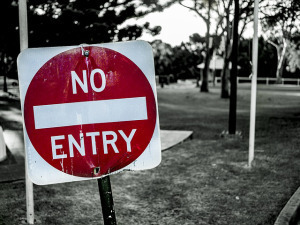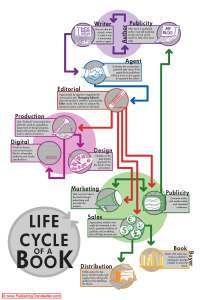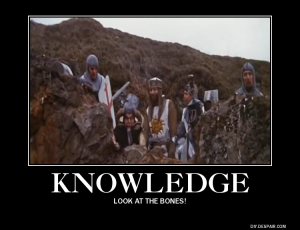Chris Sarantopoulos's Blog, page 9
November 13, 2016
Five Reasons You Can’t Get Your Novel Published – And Why It’s Not Your Fault
Have you ever wondered why a publisher (when dealing with small presses or publishers who accept unsolicited submissions) or an agent might turn down a manuscript that is perfectly and flawlessly written? What’s that? Only poorly written/edited works get rejected, you say? Think again. Every writer, including the best selling authors (enter whatever name you want here; Rowling, King, or any other) had their best work rejected more than once.
Here are five reasons this may happen, and will happen to those of us who will try traditional publishing. Don’t be disheartened. Our time will come one way or another. But it’s still helpful to identify the reasons behind a rejection, so that our ego and precious feelings don’t get crushed every time we receive one. You see, it’s not always your fault.
by Larry Kahaner
Dear Author:
Thanks for sending us your manuscript. The plot is unique, the characters are compelling and the writing is top notch. It’s one of the best books we’ve ever read. Unfortunately, it’s not right for us.
Best Regards,
The Publisher
What the…?
View original post 864 more words
Filed under: Uncategorized








November 6, 2016
More about publishing books
I’ll be continuing with what turns out to be a series of posts related to the publishing industry. Why? Because I’m halfway through revising my second novel and when it’s ready (whenever that may be) I intend to approach agents for that as well. Which makes me curious about an industry I want to be a part of, but know very little about.
All compliments and credits go to the original writers of every post I’ve reblogged, who researched and wrote about the subject so we can read them and learn a thing or two.
Today I draw your attention to Kristen Lamb’s Blog. Some of you might read her blog. For those of you who don’t, click on the link and spend some time there. There’re are a lot of things to read and learn from her in almost every aspect of writing and publishing.
A while back, she wrote an article about the nuts and bolts of the traditional publishing business called The Ugly Truth of Publishing & How BEST to Support Writers. Once again, I was shocked after reading it. Shows how little I know about important things. For me (and perhaps for others like me) traditional publishing meant writing a book, editing it to the best possible shape, getting an agent (oh, how glorious moment that’ll be!), and then

photo credit: Sheng P. Hermione Granger via photopin (license)
magic would happen and it’d eventually reach a publisher who would love it, and I’d see it on shelves of bookstores. Then I’d write another novel, and another, and I’d get paid a percentage. Simple as that. After all, once we choose to publicise our art and feel good about earning some money from it, we become entrepreneurs.
So, hands up, how many of you have actually ever wondered how a writer gets paid once you buy one of their books? Ever heard of terms like “remainder copies” or “print runs” and how they affected the writer’s wallet? I sure didn’t. I still don’t, ’cause I have a feeling this is only the tip of the iceberg.
Okay, hands up then, how many of you believed (before you started writing or met one of those strange creatures called writers) that writers make a lot of money? If not a lot, then perhaps a decent amount of it.

photo credit: kevin dooley Hey teacher! I know the answer! via photopin (license)
Almost every friend I have who knows I write has the same misconception.
Read Kristen’s post and see how things really are. It’s a long read, but you’ll learn so much from it.
Filed under: Advice, publishing Tagged: advances, how publishing works, novel, print runs, publishing, publishing contracts, remainder copies, stories, writing








October 30, 2016
Inspirational Prompt 33
Since tomorrow is Halloween for most of you, I figured I should post something relevant, something dark and, hopefully, a bit scary.
You’re in a single-room apartment where the last rays of light slip through the window and land on an old woman sitting on her rocking chair. She lives alone and forgotten. On her lap is her dog, a feisty and very protective little beast that snarls or bites anyone who dares come near her, or makes the dreadful mistake to walk outside the tiny and rundown apartment she inhabits. She has just put a record on the player – Verdi’s Nabucco – and a strong, crystal voice rises in an unpresedented crescendo.
On the wall facing her are photographs of herself at a much younger age, when the spotlights seemed like they’d never go dark, when fans flocked to her and others begged to be on stage with her. On the other side of the wall she has pinned newspaper articles from when they dragged her to prison, accused for murder. No one comes near her anymore. No one wants to know her. She’s all alone in the world. Except for her dog guardian.
The song on the record ends. It’s a live recording, so people applaud, a true standing ovation. The dog on her lap is calm. This song is almost second nature to it by now. The clapping from the record fades and eventually ends. Silence.
Except for the clapping sound in her small room that carries on. It’s coming closer.
Filed under: Inspirational Prompts Tagged: fear, Halloween horror story, horror, inspirational prompt, writing, writing prompts








October 23, 2016
More about available publishing paths
Not long ago, I published a poll where I asked published writers who visit my blog to tell the rest of us which publishing path they chose and why. Apparently, within some of these categories are subcategories, and since I’ve been trying to gather and present you with as much info about publishing as I can, I figured those of you about to have something published, or who want to try a different publishing path than traditional, might find the following interesting.
A while back, Jane Friedman posted an infographic outlining the five key publishing paths. Since then, she has updated that infographic with a new one which includes more available and up-to-date publishing options. Don’t you just love infographics? Full of knowledge, condensed into a single image.
Needless to say the poll I mentioned earlier is still open and will remain open and wouldn’t mind a few more visiting published writers to drop by and click one of the options there. If you haven’t seen it yet, now’s the time
October 16, 2016
How long does it take to publish a book?
For the past few weeks I’ve been posting things about the publishing industry, things I found interesting. And since the internet is vast (maybe not as vast as the universe) and things tend to be quite hard to find sometimes, I figured I might help another fellow writer by reblogging some of the little treasures I have found.
So a few years back, when I started writing, and decided I didn’t want to write just for myself, I found an infographic called Book’s Life Cycle. I don’t mean how long a book stays a book before it’s turned into pulp, but what are the steps between an idea sparked in our brains and the end result; a published story (traditionally or electronically), comfortably resting in a reader’s hands.
At the time, wet behind the ears as I was, I googled “How to write a book.” After sieving through the hundreds of results there, I found this infographic
You can find the original source from http://publishingtrendsetter.com/life-cycle-book/
You see, back then all I knew was that if I wanted to get traditionally published, all I had to do was get an agent, and then voilà! The magic wand would do its magic and I’d have a book on a bookstore’s shelf. Yay me! I draw your attention to where the step with the agent is on that image. That’s right; way up there. Right after the step where the writer actually writes and edits. And where’s publication? Waaaay down, with several other steps in between.
I’m not going to lie to you; there was a moment where I thought to myself, “what have I gotten myself into?!”
So, for all of you new writers like me, take a good look at this image. Don’t ever assume your story is ready, or wonder why your favourite authors takes so long to publish the next book (I can think of at least once I’ve foolishly complained about it. Hint: It’s a he, wears glasses, currently writes Dark Fantasy, allegedly indulged in pizza crawl at least once, and likes to kill almost all his characters… Yeah, him!). Look at all the steps between the writer writing up the book, and it actually hitting the shelves. Granted, for big-shot writers like the one I vaguely outlined, the time the process takes is sped up, BUT the fact remains: LOOK AT ALL THE STEPS!
Filed under: Advice, Uncategorized Tagged: duration of publishing, novels, publishing, publishing problems, story, writing








October 9, 2016
Inspirational prompt 32
Harry pulled his collar to the wind and the damp, and squatted. Even his smoke had a hard time staying lit in this weather. He glanced at the other well-tended graves to the left and right.
“Waste of space. Should ‘ve let you out for the vultures.” He took the smoke out of his mouth and spat on the dirt mound. He stood up, ignored the popping sounds his knees made, dropped the cigarette, and stomped it with his foot.
“Sure took your sweet time dying. I thought you’d never give up.
“You thought right,” a voice behind him muttered.
Filed under: Inspirational Prompts Tagged: inspirational prompts for writing, novel, stories, writing, writing prompts








October 2, 2016
Dark clouds over heaven?
Reminder: for those of you who missed it last week, there’s a poll I’d really like you to take part. The target group is published authors (self-published, trad-published, and hybrid), so if you have writer friends who wouldn’t mind spending a few minutes answering a couple of questions, please let them know about it.
I was going over some of the results from last week, even though it’s still too early to jump to any conclusions, but the first thing that struck me was the small number of traditionally published authors that answered the poll. Which got me thinking.
I searched a bit online about the reasons why a writer would choose a path outside that of traditional publishing, or if there’s something else wrong with it, particularly if there was anything off-putting outside it being hard to get noticed by publishers and agents. I was looking for something outside what most people have heard about. I thought it would be a wild goose chase. I thought it should be bright sunshine over heaven.
And then I stumbled on this article.
Now, I have no knowledge of the intricacies of contracts in general (let alone publishing contracts), but I’ve been following Susan Spann’s tweets about such things, particularly everything she tweets or writes about rights as often as I can (which admittedly is not as often as I should), and I must say that what this article describes was something I had a hard time accepting. No, not because it was far-fetched or false (apparently, it’s VERY real), but because I honestly (and gullibly, I guess) believed that every traditional publisher would shy away from. At least when it comes to payment. I was under the impression that a publishing contract is more often than not a struggle about who gets what rights, and any problems about payment would stem from that. Perhaps it’s just me and my limited knowledge of the industry. If so, mea culpa.
I don’t know if what Michael Kozlowski describes is a one-of incident or the norm. I have yet to land a contract. You’ll need an agent’s or a publisher’s opinion on that. I really hope it’s the former. I mean, you’d think that with all the pressure Amazon is putting on traditional publishing in general, traditional publishers would be more protective and respectful to their authors. Perhaps what Mr Kozlowski describes only happens to dubious and small houses. If that’s the case, then maybe not all is lost for traditional publishing. But what if it’s the norm? Has any of these publishers considered what would happen to their businesses if all the writers chose not to partner with them?
It’s things like that, that make me want an agent in my corner before I go anywhere near a contract.
Filed under: Advice, Uncategorized Tagged: publishing, publishing contracts, publishing problems, traditional publishing, writer, writers, writing








September 25, 2016
Traditional Publishing, Self Publishing, or Hybrid? A Poll
A couple of weeks ago, I reblogged Lara Willard’s post about the different choices a writer has to get published. Even though I decided that traditional publishing was what I wanted, I’d still like to know what the other side has to offer, because deep down I haven’t rejected the idea of self publishing something. However, since I’m not yet published (either self pubished or trad published) I’d like to know the pros and cons of each.
So I turn to you. What is your take on this? Why did you choose the publishing path you chose? I’d really appreciate it if you took the time to answer. Please feel free to reblog this (in fact, I’d be very happy if you did), or talk about it to as many of your writer-friends as you can. The more people answer, the clearer the picture for me and others will be. So far, the options I know about are the following:
A) Self-publish
B) Traditional Publish (either through an agency or through a small press. I think we can all agree that vanity presses should be excluded)
C) Hybrid
If I’ve missed any other option, please comment. You can select more than one option.
I chose
Take Our Poll
Take Our Poll
C) to be a Hybrid writer because:
Please specify in the comments.
As I said, I don’t really know the benefits of either option, which made it very hard for me to come up with questions that will cover as many probable answers as possible, other the almost cliché “I wanted the best of both options.” So, for you, the hybrid writers, I would appreciate it if you could take the time and answered in the comments section.
After a few weeks I intend to return to this post and discuss the results.
Thank you all for participating. Please feel free to reblog this.
Filed under: Getting to know each other, Uncategorized Tagged: hybrid publishing, hybrid writer, novel, poll, publication, self publishing, self-published, stories, trad publishing, traditional publishing, traditionally published, writing








September 18, 2016
Inspirational Prompt 31
I think most of you must have heard of the story of the pied piper. How about you attempt to retell the story? Perhaps a kid wants to save kitties (from someone or something) and lures them to safety, or maybe the child heard of the folk tale and wanted to do the same, but only managed to lure one cat (a neighbour’s cat or from someone who needed the cat; you can expand on that and create conflict).
Or the flute is magical and is the only way for the two of them to communicate. Perhaps the cat (or any other animal you choose) understands the child needs her and guides him to the flute.
You can go any way with this one, I think.
Filed under: Inspirational Prompts Tagged: inspirational prompt, novel, short story, stories, story, writing








September 11, 2016
Self Publishing or Traditional: Which is Better for You?
I thought this article by editor Lara Willard would be helpful for those of you still trying to decide which publishing way best suits you.
Are you trying to decide between self-publishing or traditional publishing? Both have pros and cons! Here’s a quick summary of the differences.
Traditional publishing is about collaboration and takes time.
Self publishing is about control and costs money.
Money
Traditional publishing pays you some thousand dollars* at the beginning and some pocket change per book once the advance is paid off.
Self publishing costs some thousand dollars to put together your publishing team, but you earn a bigger percentage of your book.
Either way, you need to market your own book if you want to be successful. Traditional publishers will handle 40–60% of your marketing. The rest is up to you. That’s why people with huge followings are easy deals. Publishers know they’ll sell books.
*The average advance for a first-time novelist is $10,000. See the link to the SFWA post for more information about small presses and vanity publishers.
View original post 659 more words
Filed under: Uncategorized
















